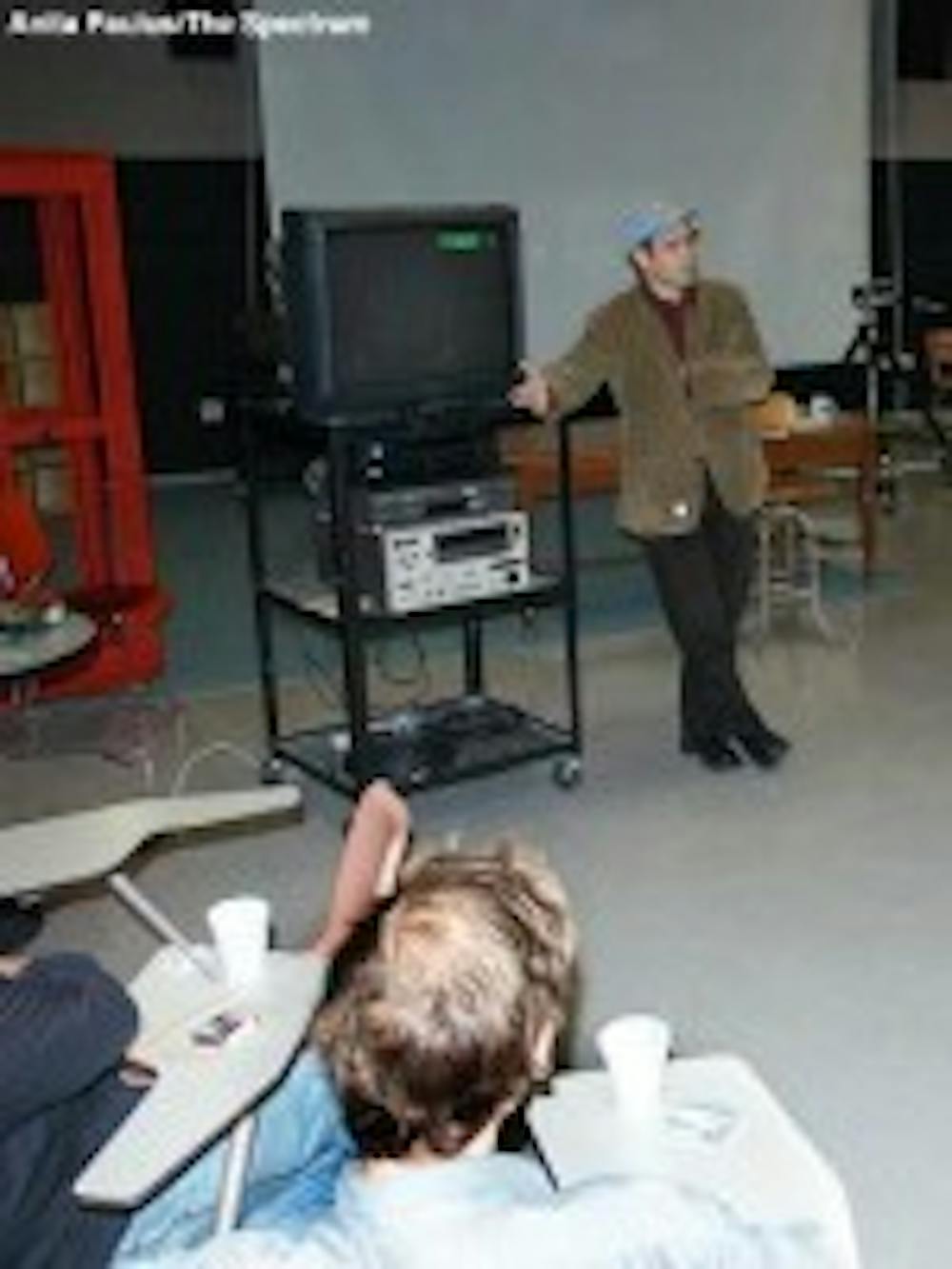Elliot Caplan, an award-winning filmmaker, has spent a dozen years visiting family in Buffalo without stepping foot onto UB property. He would look at the Lego-like structures of the North Campus and the serene waterfront by the Center for the Arts and constantly tell himself he wanted to be a part of UB's academic life.
This semester, Caplan finally joined the faculty he wondered about being a part of for last 12 years.
Caplan decided after the Sept. 11 attacks to stop traveling abroad to teach. Now, he commutes from New York City each week to teach two upper-level media studies classes at UB, taking the 50-minute JetBlue flight from JFK Airport to Buffalo.
"This past semester has been very challenging, but it's been terrific because I'm getting the idea in my head that I might be here for a while and that interests me at this point in my life," Caplan said.
Before coming to UB to teach as a guest professor, Caplan also taught part-time at Sarah Lawrence, Long Beach, and colleges in England.
"The way that I've lived my life, I've tried to keep my eye out for the best options and decisions I can make," Caplan said.
His own production company, Picture Start Films, is based on Manhattan's Lower East Side and has given rise to such films as "Nicholas and Alexandra" and "Hidden Things."
"The term 'Picture Start' is a technical one meaning the initial point where the picture and the sound come together on film," said Caplan, who recently signed a three-year contract to teach at UB.
Caplan said he has also enjoyed the opportunity to work outside the media studies department. He and David Felder, a professor in the music department, are co-teaching a course about filmmaking and music.
"I had the opportunity to study with people who changed my life when I was younger and I knew that I would be interested in doing the same for others," Caplan said.
Caplan added that in today's cultural environment, artists face difficult questions and issues relating to producing work and making a living.
"It has been a very challenging time," he added, referring to the current state of the art world. "Not just because of what's going on in the world but also because of the economic troubles as well. But students and filmmakers shouldn't look at the difficulties of budget limitation to produce work."
Caplan's appetite for teaching shines through in his classes. As an artist, he acknowledges the need to think outside the box, but also says students need structure.
"What I offer my students has to do with a kind of rigor and discipline that is fairly narrow," he said. "I believe that setting parameters is important."
Instead of telling his students what to do and how to do it, Caplan said he lets them figure out on their own why they're doing it to begin with.
"The point of teaching is to get the students to ask the right questions," he said.
After his first year at UB, Caplan has made enough of an impression to have some students lining up to take his class.
"I haven't been able to take any of Professor Caplan's courses yet, because I'm only a sophomore," said Michael Farber, a media studies major. "But hopefully next year I'll be able to study under this great filmmaker."





